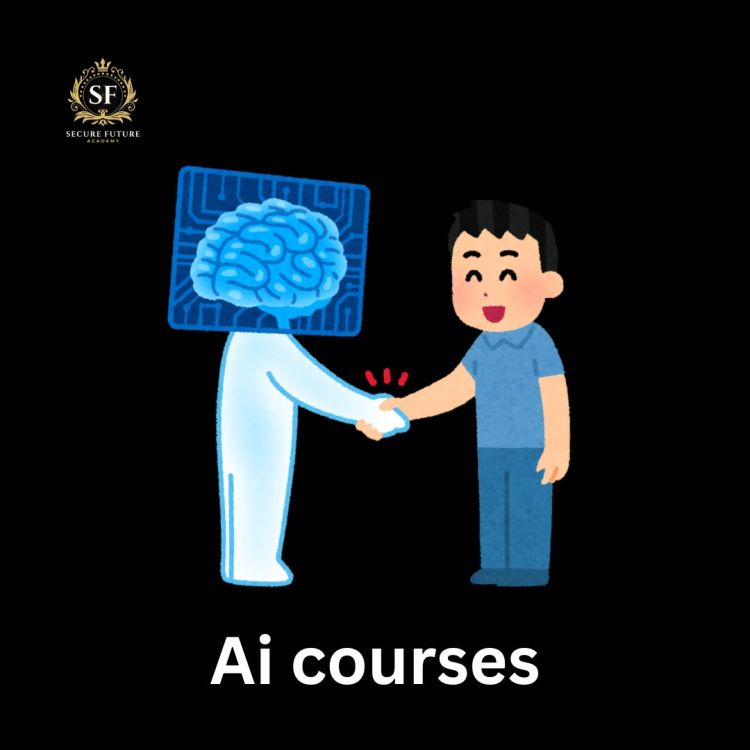
Certainly! If you're designing an AI course, here's a general outline that covers fundamental concepts and practical applications:
Course Title: Introduction to Artificial Intelligence
1. Introduction to AI
- Wat is AI?
Definitions, history, and the evolution of AI.
- Applications of AI
Real-world examples in various industries (healthcare, finance, entertainment).
2. Foundations of AI
- Mathematics for AI
Linear algebra, calculus, probability, and statistics.
- ogramming for AI
Introduction to Python (libraries like NumPy, pandas, scikit-learn).
3. Machine Learning (ML) Basics
- Supervised Learning
Classification (e.g., logistic regression, decision trees) and regression (e.g., linear regression).
- Unsupervised Learning
Clustering (e.g., k-means) and dimensionality reduction (e.g., PCA).
- Evaluation Metrics
Accuracy, precision, recall, F1 score, ROC curves.
4. Advanced Machine Learning
- Deep Learning
Neural networks, CNNs, RNNs, and their applications.
- Model Optimization
Hyperparameter tuning, regularization, and optimization algorithms (e.g., SGD, Adam).
5. Natural Language Processing (NLP)
- Text Processing
Tokenization, stemming, lemmatization.
- Language Models
Introduction to models like GPT, BERT, and their applications.
6. Computer Vision
- Image Processing Basics
Image filters, edge detection.
- Advanced Techniques
Object detection, image segmentation, and deep learning for vision.
7. AI Ethics and Societal Impact
- Ethical Considerations
Bias in AI, privacy issues, and transparency.
- Societal Impact
Job displacement, AI in decision-making, and regulations.
8. AI in Practice
- Building AI Models
End-to-end project (from data collection to model deployment).
- ols and Platforms
Introduction to TensorFlow, PyTorch, and cloud-based AI services (e.g., AWS, Google Cloud AI).
9. Future Trends in AI
- Emerging Technologies
AI in robotics, autonomous systems, and AI-enhanced creativity.
- Research Directions
Current challenges and the future landscape of AI research.
10. Course Wrap-Up
- Final Projects
Showcase individual or group projects that integrate course concepts.
- Review and Q&A
Recap of key topics, open discussion, and feedback.
Assessment Methods
- Quizzes and Exams
Regular quizzes to test knowledge and comprehension.
- Assignments
Practical coding assignments and data analysis tasks.
- Projects
Real-world projects that demonstrate the application of learned skills.
Recommended Resources:
- Textbooks
"Artificial Intelligence: A Modern Approach" by Stuart Russell and Peter Norvig.
- Online Courses and Tutorials
Platforms like Coursera, edX, and Udacity for supplementary learning.
Qualification : 10th / 12th / Graduated . etc